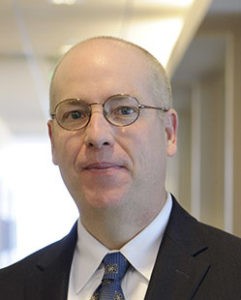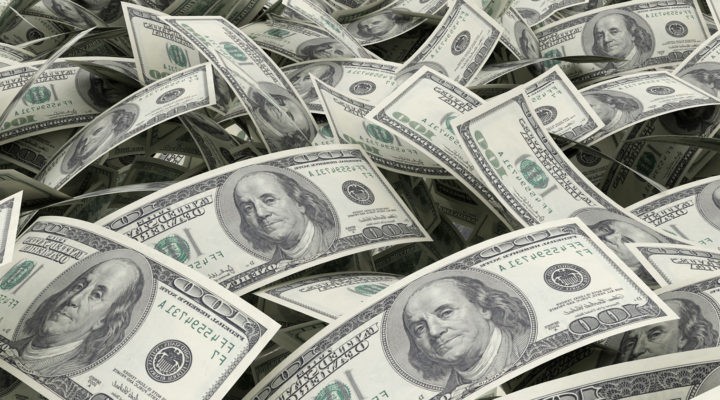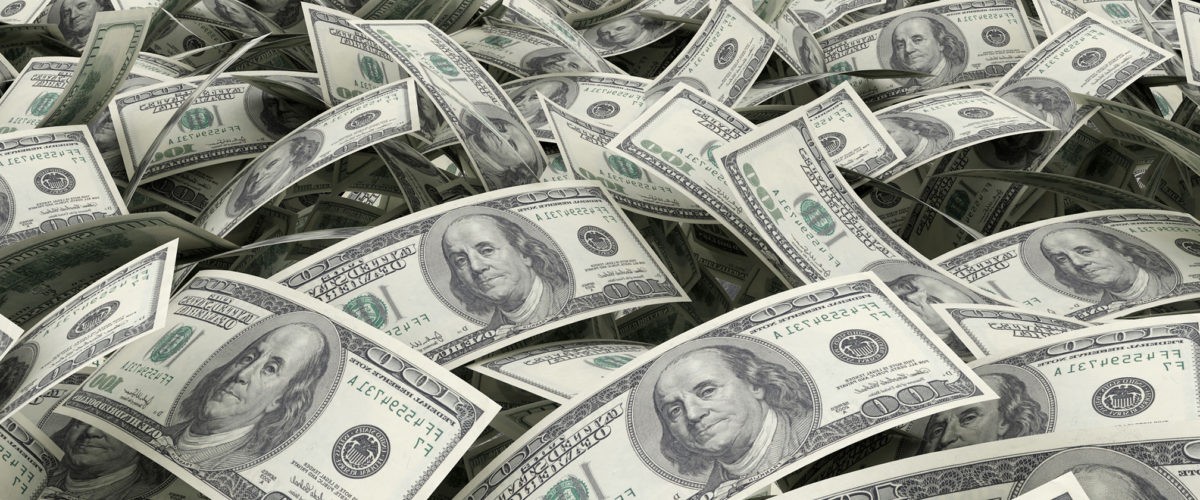Growing up in the 1970s, there were some things I was sure of. One such truth was that America is a Christian nation — founded by Christians, based on Christian principles, uniquely favored by God.
I suspect many Christians who recently have found themselves caught up by the idea of “Making America Great Again” may have had this mythical Christian America in mind. Leaving aside the thorny question of what it might actually mean to be a Christian nation in an increasingly pluralistic culture, America’s Christianity is far from self-evident, especially if we look at the truest barometer of a value system at work — our national checkbook.

Chris Conley
For a nation always ready, willing and able to buy more bullets and bombs (spending more on our defense budget than the next 10 highest-spending nations combined), we never can seem to scrape together enough funds to house and feed our poorest children or to provide even basic health care to our sickest neighbors.
Despite a true embarrassment of national riches, spiraling wealth inequality is, in fact, creating two Americas — a nation of the obscenely wealthy and a nation of the desperately poor.
Of course, neither the America of our past nor any other nation ever has achieved perfect equity in distributing its wealth, but the trend in America is not one toward justice, nor is it sustainable.
According to the Pew Research Center, as of 1944, the top 1% of American families claimed 11.3% of the nation’s pre-tax income, while the bottom 90% earned 67.5%. As imbalanced as that distribution of wealth seems, it pales in comparison to the current state of affairs. By 2013, the top 1% of American families’ income share had doubled to 22.5%, while the bottom 90% had seen its share drop below 50% for the first time ever, plummeting to 49.6%.
The ugly truth told by these numbers is even more clearly seen on almost any city street corner, where brand-new luxury cars speed past persons who are homeless, begging for spare change.
Whatever such a nation may be, it is not Christian. Whatever else it reflects, it does not mirror the values of the kingdom of God.
It is not a nation that looks like a God who “secures justice for the poor and upholds the cause of the needy” (Proverbs 13:23). It does not sound like a Christ who came to preach good news to the poor and release to the oppressed (Luke 4:18).
“Rather than modeling the kingdom of God, America mimics Sodom in being ‘arrogant, overfed and unconcerned’ for the plight of the poor.”
Rather than modeling the kingdom of God, America mimics Sodom in being “arrogant, overfed and unconcerned” for the plight of the poor (Ezekiel 16:49). On a visit to America today, I fear that God would find the plunder of the poor in the McMansions of the rich (Isaiah 3:14-15), and would despair to see the lifeblood of the needy soaking the designer clothing of the wealthy (Jeremiah 2:34). Many of us would be found lacking in God’s love as, despite our comfort and wealth, we still can look upon our brother in need without pity (1 John 3:17).
Given this shocking disconnect between the reality of America and the Christian principles on which she purports to stand, you would think Christians would be universally in favor of restoring a tax burden on the nation’s richest citizens commensurate with their disproportionate wealth so that we can strengthen and expand the public services needed to lift our poorest neighbors out of their poverty.
Instead, the backlash to such proposals has been pronounced. Even the slightest move toward more progressive taxation is shouted down as “ungodly socialism,” with Zachary Garris urging that “God is a capitalist” and Ralph Drollinger opining that the “Bible is pro-private property rights,” as “God knows that personal ownership of private property is fundamental to every individual’s ability to express his highest possible self as a reflection of his being created in God’s image.”
Let that soak in for a minute, but don’t let the shock of learning that we best bear the Imago Dei in our ownership of our stuff deafen you to “Christian economist” Gary North’s admonition that any movement toward democratic socialism essentially re-writes the Eighth Commandment to state, “Thou shalt not steal except by majority vote.”
Such a notion of a sacred right of personal wealth insulated against any demands imposed by the common good may, unfortunately, be American in tone, but it is not Christian in flavor. It bears no resemblance to God’s community in the Old Testament, where landowners were told that the edges and gleanings of their own fields did not belong to them, but instead, by law, belonged to the poor (Leviticus 19:10).
Such a notion shares no common ground with the first Christian communities which, for at least one shining moment before the light of the first Easter began to fade from memory, could boast that there were “no needy persons among them” as those Christians who owned property sold it, redistributing the proceeds “to anyone who had need” (Acts 4:34-35).
The idea that undisturbed ownership of personal property is the key to our reflecting God’s image would be puzzling to Saint John Chrysostom, who urged that “what we possess is not personal property, it belongs to us all,” and who admonished that “thine” and “mine” are “chilling words” that should be eliminated entirely within the church.
“Economic justice is plainly not a problem calling for a ‘lemonade stand’ solution.”
St. Basil the Great would be surprised to learn that the poor have no lawful claim to the excess wealth of the rich, given his understanding that “the bread in your larder belongs to the hungry; the cloak in your wardrobe belongs to the naked; the shoes you allow to rot belong to the barefoot; the money in your vaults belongs to the destitute.”
None of this is to say that — like the rich young ruler — we are each called to sell all that we own and give the proceeds to the poor. I do not have the faith needed to do that, but my mustard seed of faith does lead me to support the type of progressive taxation in the United States which, although likely to diminish my own personal wealth, will afford me an opportunity to “render unto God” while “rendering unto Caesar,” serving the common good rather than my own selfish interests.
I also have the wisdom to see that such a governmental approach is absolutely essential, as sole reliance on voluntary private charity that cannot leverage the massive wealth accumulated and held by the richest of our nation’s citizens and corporations never can meaningfully address a problem of the size and scope of America’s poverty epidemic. Economic justice is plainly not a problem calling for a “lemonade stand” solution.
In sum, and to borrow from Saint Augustine, “Blessed … are those who make room for the Lord, so as not to take pleasure in private property. Let us therefore abstain from the possession of private property — or from the love of it, if we cannot abstain from possession — and let us make room for the Lord.”
If we can do that, maybe the myth of a Christian America could at least begin to approach reality. In that sense, we might — individually and as a nation — actually start reflecting the image of God, rather than recasting that image in the form and shape of our own greed and materialism.
Chris Conley is an attorney and graduate of the University of Georgia and of the Emory University School of Law. He and his wife, Mary, live in Athens, Ga., where both are members and deacons at First Baptist Church. They have one son, Aaron, who also is an attorney, and a miniature schnauzer, Oso, whose career path remains uncertain.


